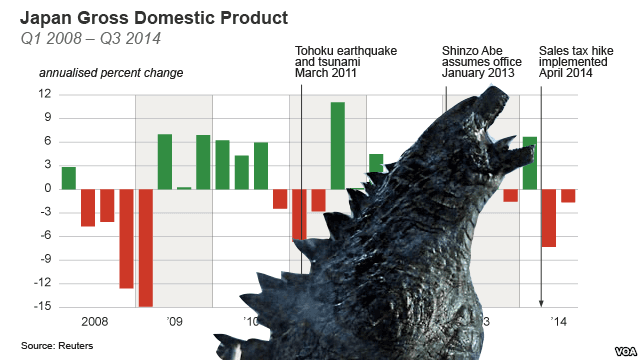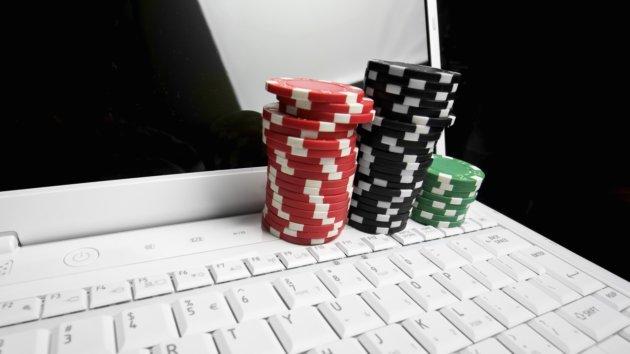The last time Japan raised its consumption tax, in 1997, domestic consumption slowed considerably and it brought the Japanese economy to a halt. Despite what seemed to be a promising economic recovery in 1996, with GDP growth of 4.3%, the consumption tax increase from 3% to 5% caused a recession. Consumption plummeted 13% the next quarter following the tax hike. The downturn lasted more than a year and a half, deflating the yen and forcing then Prime Minister Ryutaro Hashimoto to resign.
The Abe administration is hoping that their latest tax hike, which took effect April 1st and raised the consumption tax to 8%, won’t be a repeat of 1997. In order to negative impact of the tax increase, Prime Minister Shinzo Abe announced a stimulus plan worth up to 5 trillion yen, including a potential cut in the corporate tax rate, family assistance for low-income households, and other measures.
Jesper Koll, director of research at JP Morgan in Tokyo, told The Diplomat last month that other government polices, such as a 8% wage increase for government workers and growing pay rates from small and medium enterprises, would cushion the blog of the consumption tax hike.
The Bank of Japan thinks that the recession from 1997 had less to do with the consumption tax hike and more to do with two other incidents in 1997: Japan’s banking turmoil from November and Asia’s currency turmoil in July.
A poll from a few weeks after the tax hike went into a effect found that household expenditures were primarily unchanged. According to a recent nationwide Yomiuri Shimbun poll, roughly 62% of those surveyed stated that expenditures either increased or are unchanged.
The approval rating for the Abe Cabinet stood at 58 percent and remained almost on the same level as in the previous poll—59 percent—indicating the tax rate hike had not affected the public’s view of the government much. The disapproval rating stood at 34 percent, up from 31 percent in the previous survey.
On April 27th, Kagoshima prefecture had a lower house election, the first national-level election since Japan’s consumption tax rose. Analysts called the election as the first real test for how the public is perceiving the tax hike. The Liberal Democratic Party’s candidate, Former prefectural assembly chairman Masuo Kaneko, won the election on Sunday, symbolizing a major victory for the Abe administration.
The LDP’s Kaneko, 67, who was supported by its junior coalition partner the New Komeito party, defeated Akashi Uchikoshi, 56, an independent backed by the Democratic Party of Japan and three other opposition parties.
Sunday’s election victory was a relief for Abe, and provides him with the ability to continue with a number of his policy objectives. “We got voter support for our policies and will continue to devote our energy,” Abe stated after he learned of the results.



